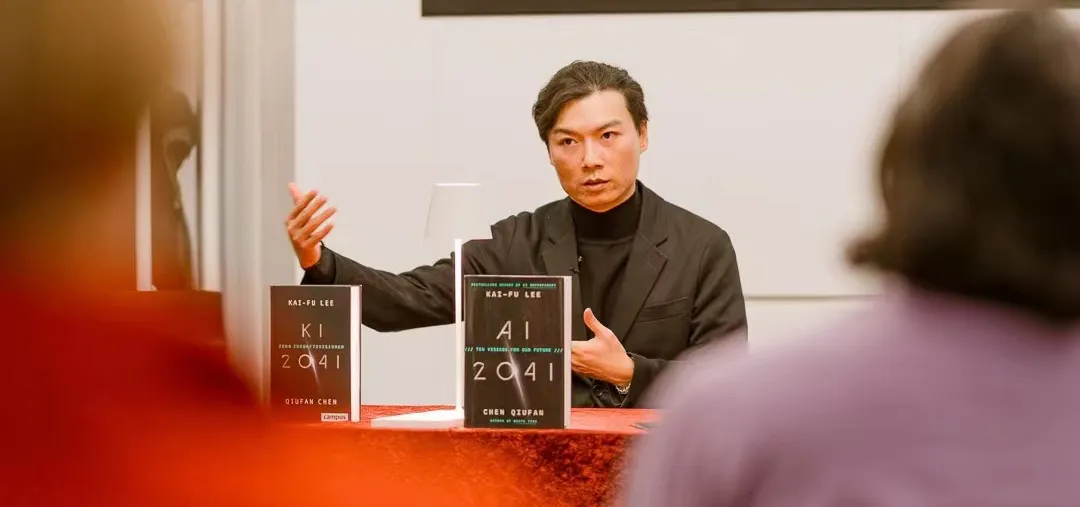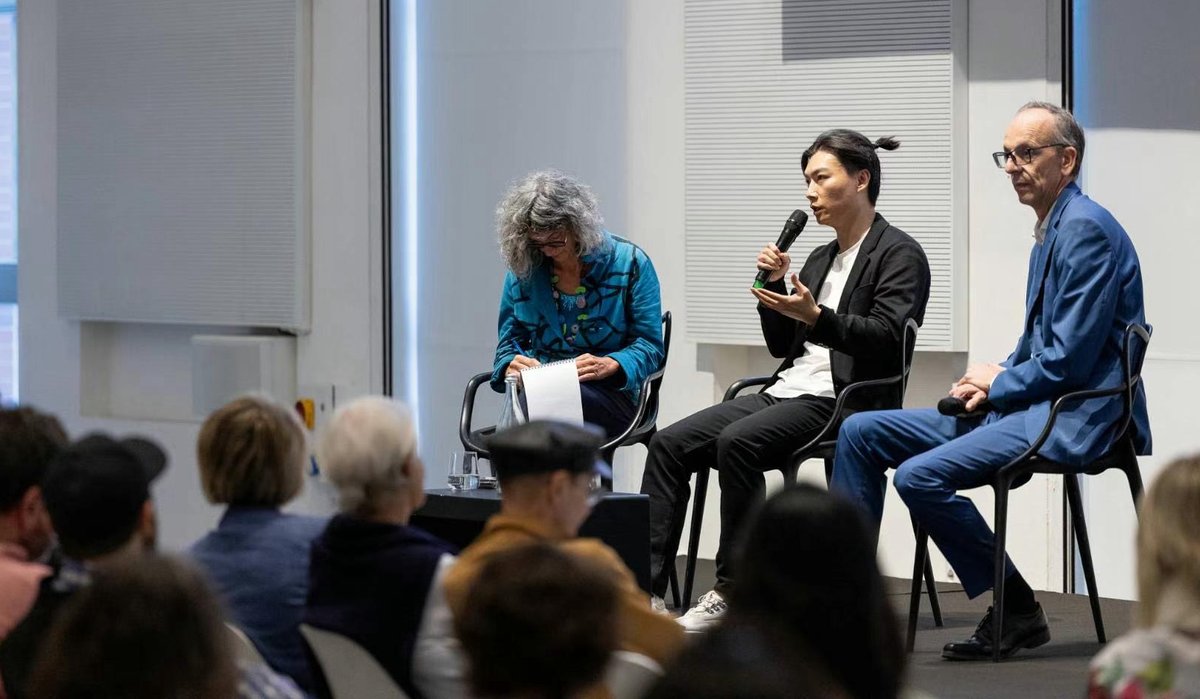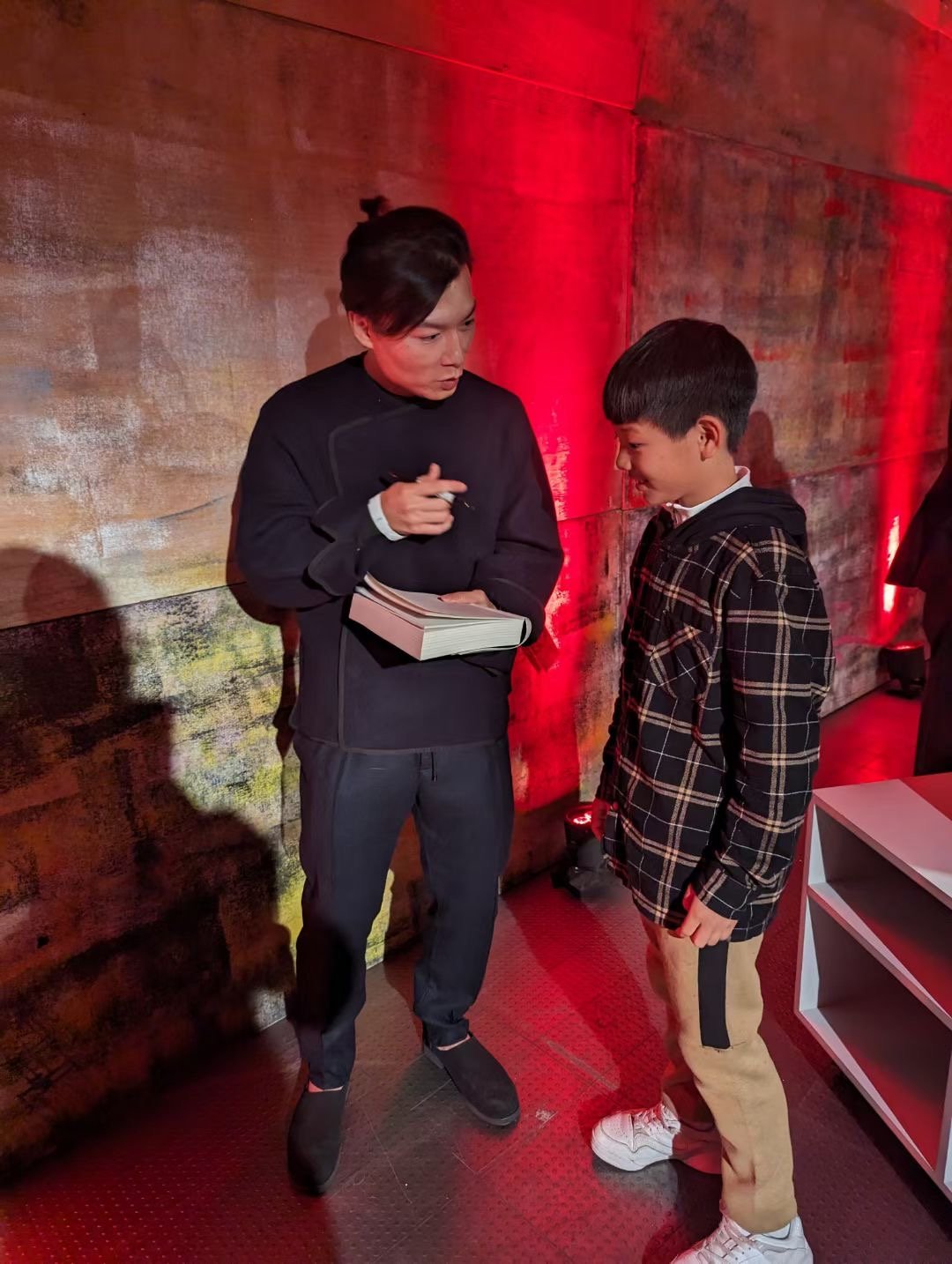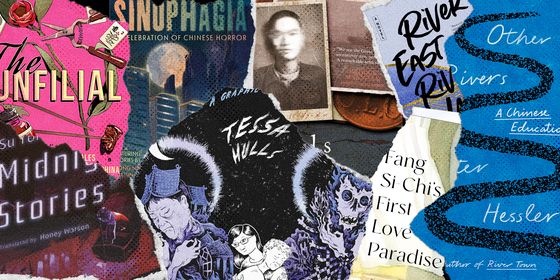Renowned Chinese sci-fi writer Chen Qiufan discusses his book “AI 2041,” humanity’s AI future, and how he gets published overseas
The rise of generative AI like ChatGPT and Midjourney has been one of the biggest news stories of 2023. From translators to computer programmers, many are already seeing these new technologies impact their work and employment prospects. But renowned Chinese sci-fi writer Chen Qiufan (also known as Stanley Chan) is optimistic.
At a panel discussion on November 11 during this year’s Paris Peace Forum, themed around climate change and AI among other global challenges, Chen argued that humankind’s future isn’t necessarily bleak. “We have our agency, our autonomy to make changes by learning, adapting, and bringing along all of humanity,” said Chen. He believes that changing people’s mindsets is the first step to building the framework for a better technological future, and the best way to do it is through imaginative thinking.
A former employee of Google and Baidu, Chen Qiufan became a full-time writer in 2017. A frequent recipient of Galaxy Awards and Nebula Awards for Chinese sci-fi and fantasy writing, Chen is also an active member of international sci-fi and technology communities. His novel The Waste Tide (released in 2013 in Chinese) has been widely translated and published internationally in the past decade, along with many of his short stories.
“Technology is co-living with us and we have to think of it as a symbiotic relationship, just like Daoism: Everything is interconnected,” Chen explained on the panel. “We are one of the many kinds of intelligence on this planet, and we must learn to co-live with [technology] in a harmonious way. This is why I believe we should think beyond the fear and favor binary.” Chen has also been experimenting with AI in his work, and believes it has made him a better writer: “…you have to be more creative, to go back to human essence and be more emotional, to grab your perception of the world, use your childhood memories, and dig deeper into your humanity.”
Currently on a book tour in Europe for AI 2041: Ten Visions for Our Future, a collection of 10 short stories by Chen, and 10 accompanying essays of incisive analysis by former Google president in China, Kai-Fu Lee, Chen traveled through Italy, Spain, Germany, and France to attend a series of book fairs, festivals, forums, and university talks. With its English and Chinese versions published in 2021 and 2022, AI 2041 is a timely release at a transformative moment.
The World of Chinese and the China Publishing & Media Journal caught up with Chen during his busy book tour to talk about the international reception of his work, his take on our AI future, and his future plans.
TWOC: Taking into account recent developments (since you first published AI 2041), how do you reflect on the AI technology predictions you made in the book? How did you make these predictions?
Chen Qiufan: AI is evolving at a surprising pace compared to what we predicted. The sci-fi stories in the book could become our reality in less than two decades. We based our predictions on the development patterns at the time, such as the exponential growth of computing power according to Moor’s Law (an observation made by Intel co-founder Gordon Moore to describe the rapid advancement of semiconductor technology). We looked at fields with emerging innovations, and where resources are aggregated. With the increase in computing power and optimization of algorithms and data, we tried to imagine how hardware would upgrade. All in all, our predictions were rational, linear projections based on reality.
How did you create AI 2041? And how has it been received?
In 2019, Kai-Fu Lee and I got the idea of writing this book. From the very beginning, we targeted the global market by adopting an international narrative. We spent about six months researching discussions of what AI would be like in the future by experts in fields like humanities, law, philosophy, social sciences, and so on. Then we decided on the book’s structure, with 10 stories on different industries, such as finance, transportation, and medicine, to discuss the possible impact of AI, including issues of ethics and law. We also combined the stories with specific social problems in different countries.
AI has become a buzzword in the past two years and, especially with the launch of ChatGPT, the technology has become a reality. In America and Europe, AI 2041 is often assigned reading in many schools, even universities like Stanford, helping students to understand the relationship between technology and human society. The book has now sold rights in over 20 languages. It was also awarded the German Business Book Prize 2022 during the Frankfurt Book Fair, among other recognitions.
What stands out about your book tour in Europe so far?
Over the past few months, various European book fairs and cultural institutes invited me to do talks and panels. I found that most overseas readers I’ve met are very interested in Chinese culture, language, and literature. It’s hard for them to access such content. What is available to them is so removed from their daily lives, such as stories set in rural China. Young readers are hoping more to learn about contemporary China and what’s on the minds of young people in the country. But there’s a serious lack of new, intriguing publications on China in their local bookstores. They really appreciate face-to-face communication with a Chinese writer. I think it’s necessary to build trust and introduce them to a lively China.
What challenges does Chinese literature face in breaking into the global market? How can the challenges be overcome?
The challenges are not small. Chinese literary works are currently translated and published mostly by university presses, or smaller independent publishing houses that do not have strong marketing power or sales channels. They sell about a few hundred to a few thousand copies to the sinologist circle or enter into libraries. The mass market remains out of reach. There are many initiatives driven by Chinese authorities, but they haven’t translated well to the public, because they can appear too official or formal. Chinese sci-fi and online literature, on the other hand, have made quite an impact overseas through their own appeal. Relying on individual organizations or agents who have expertise in the overseas market is far more effective. Different works also have different value: some are of great literary value, others of mass market value. There needs to be tailored publishing and marketing plans for each.
How did you manage to sell the rights to The Waste Tide and AI 2041 abroad?
After The Waste Tide was published, The Grayhawk Agency based in Taiwan contacted me about representing its international rights. I contacted (renowned American sci-fi writer and translator) Ken Liu to translate it, and The Grayhawk Agency paid the fee. With the translated manuscript, the agency approached several international publishers, among whom Tor Books bought it. The original editor of The Waste Tide was David G. Hartwell who passed away. A new editor, Lindsey Hall, took over. In 2019, the English version finally came out. Lindsey also won the Hugo Award for Best Editor, Long Form, this year. The Waste Tide was published in France last year and has sold over 5,000 copies so far. Its publisher plans to release a pocketbook version next year, which could drive more sales. It was also published in three different editions in Italy. AI 2041 has sold over 100,000 copies globally so far. A new edition with an updated foreword by Kai-Fu Lee will be released next year.
What are you working on right now?
I was in talks with Luiss University Press in Italy to publish a Chinese cyberpunk sci-fi collection with sinologist Li Sha (Patrizia Liberati). This publisher pivoting to target the mass market. I am also meeting my publishers in various countries to talk about future writing plans. Many publishers are actually very open to translating and publishing Chinese works. But the key is to recommend works that fit their brand and direction.
This article is co-published with China Publishing & Media Journal















